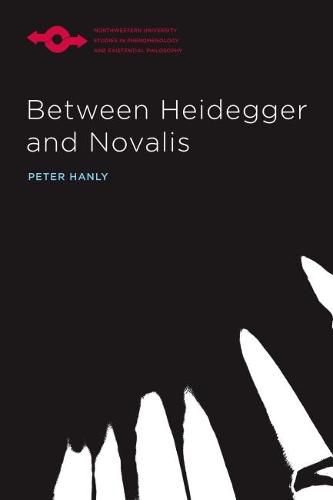Readings Newsletter
Become a Readings Member to make your shopping experience even easier.
Sign in or sign up for free!
You’re not far away from qualifying for FREE standard shipping within Australia
You’ve qualified for FREE standard shipping within Australia
The cart is loading…






This book brings a central figure of the early German Romantic movement–the poet and philosopher Novalis–into dialogue with the work of Martin Heidegger. Looking beyond the question of direct influence, the book demonstrates that Novalis and Heidegger pursued complementary endeavors as thinkers of relation. Implicitly operative in their thinking, Peter Hanly argues, is an excavation of the Greek conception of harmonia found in the fragments of the pre-Socratic thinker Heraclitus. This is a conception that understands harmony not as concordance but as primal dissonance. It is this experience of harmonia, Hanly proposes, that allows both Novalis and Heidegger to think relation in terms of dynamic and contradictory energies of separation and convergence. Between Heidegger and Novalis thus is a study of the in-between, associated in Novalis with energies of fertility and productivity and in Heidegger with energies of agonistic difference. An entirely new approach to both Novalis and Heidegger, this book will interest scholars and students engaged with continental philosophy and the legacy of German Romanticism.
$9.00 standard shipping within Australia
FREE standard shipping within Australia for orders over $100.00
Express & International shipping calculated at checkout
This book brings a central figure of the early German Romantic movement–the poet and philosopher Novalis–into dialogue with the work of Martin Heidegger. Looking beyond the question of direct influence, the book demonstrates that Novalis and Heidegger pursued complementary endeavors as thinkers of relation. Implicitly operative in their thinking, Peter Hanly argues, is an excavation of the Greek conception of harmonia found in the fragments of the pre-Socratic thinker Heraclitus. This is a conception that understands harmony not as concordance but as primal dissonance. It is this experience of harmonia, Hanly proposes, that allows both Novalis and Heidegger to think relation in terms of dynamic and contradictory energies of separation and convergence. Between Heidegger and Novalis thus is a study of the in-between, associated in Novalis with energies of fertility and productivity and in Heidegger with energies of agonistic difference. An entirely new approach to both Novalis and Heidegger, this book will interest scholars and students engaged with continental philosophy and the legacy of German Romanticism.